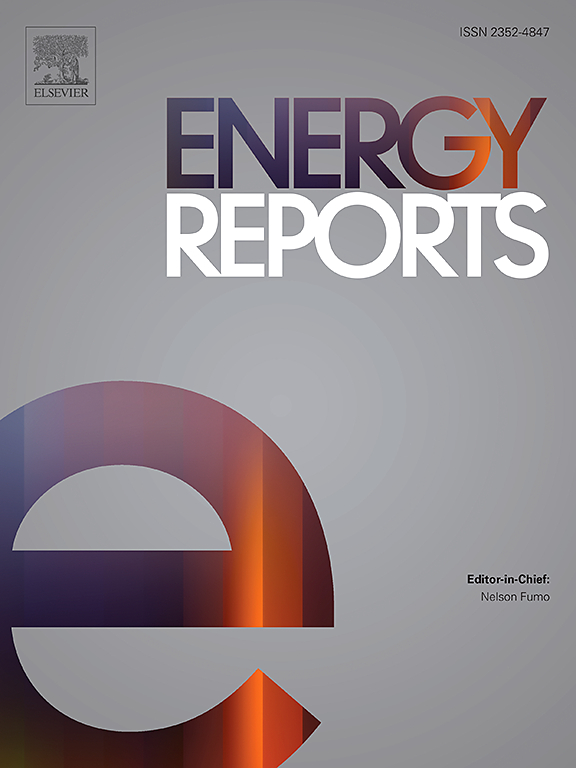可再生能源消费、政府政策和收入不平等动态:来自非洲的经验证据
IF 5.1
3区 工程技术
Q2 ENERGY & FUELS
引用次数: 0
摘要
本文考察了非洲采用可再生能源和政府政策对收入不平等的无条件和偶然影响。两步系统广义矩量法(SGMM)是主要的估计方法。然而,此外,可行广义最小二乘(FGLS)解决了横断面依赖性、异方差和自相关性,并对包括1990年至2023年52个非洲国家在内的面板数据进行了部署。这些数据来自标准化世界收入不平等数据库和世界银行。研究结果表明,作为一种共同利益,可再生能源的部署减少了收入不平等。更值得注意的是,通过监管质量和政府效率,可再生能源和健全的政府政策的协同作用进一步减少了收入不平等。因此,计算出的负净效应证实了这种协同效应的立场。考虑到北非和南部非洲的可再生能源部署最少,这些国家的政府有责任增加可再生能源的使用,并提高其治理指数。这甚至适用于收入不平等更为持久的南部非洲。与可持续发展目标一致的总体政策方向是,除了提高环境质量外,通过健全的政府政策促进可再生能源的采用与收入再分配有关。本文章由计算机程序翻译,如有差异,请以英文原文为准。
Renewable energy consumption, government policy and income inequality dynamics: Empirical evidence from Africa
This paper examines the unconditional and contingent effects of renewable energy adoption and government policy on income inequality in Africa. The two-step System Generalized Method of Moments (SGMM) is the primary estimator. In addition, however, the Feasible Generalized Least Square (FGLS) that addresses cross-sectional dependence, heteroscedasticity and autocorrelation is deployed on a panel data that includes 52 African countries from 1990 – 2023. The data are gleaned from the Standardized World Income Inequality Database and the World Bank. The findings show that as a co-benefit, renewable energy deployment reduces income inequality. More notably, a synergy of renewable energy and sound government policy via regulatory quality and government effectiveness further reduces income inequality. Accordingly, the computed negative net effects confirm this stance of synergistic effects. Given that North Africa and Southern Africa deploy the least renewables, it is incumbent on these governments to increase renewable energy adoption and also improve their governance index. This is even pertinent for Southern Africa, where income inequality is more persistent. The general policy direction in line with the SDGs is that, besides promoting environmental quality, promoting renewable energy adoption via sound government policy is relevant for income redistribution.
求助全文
通过发布文献求助,成功后即可免费获取论文全文。
去求助
来源期刊

Energy Reports
Energy-General Energy
CiteScore
8.20
自引率
13.50%
发文量
2608
审稿时长
38 days
期刊介绍:
Energy Reports is a new online multidisciplinary open access journal which focuses on publishing new research in the area of Energy with a rapid review and publication time. Energy Reports will be open to direct submissions and also to submissions from other Elsevier Energy journals, whose Editors have determined that Energy Reports would be a better fit.
 求助内容:
求助内容: 应助结果提醒方式:
应助结果提醒方式:


